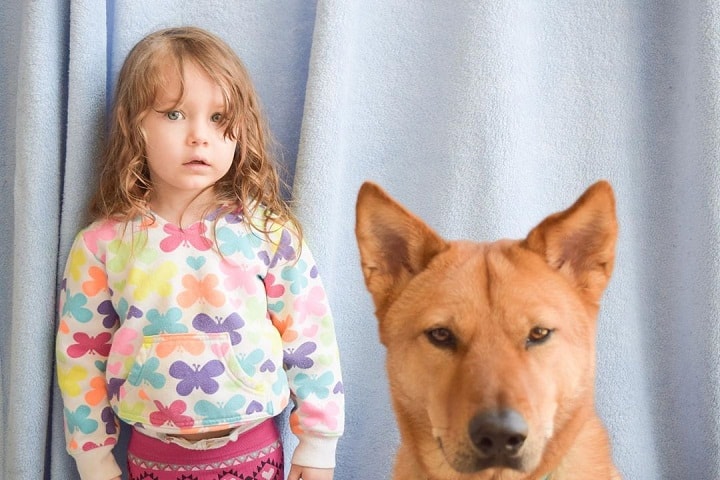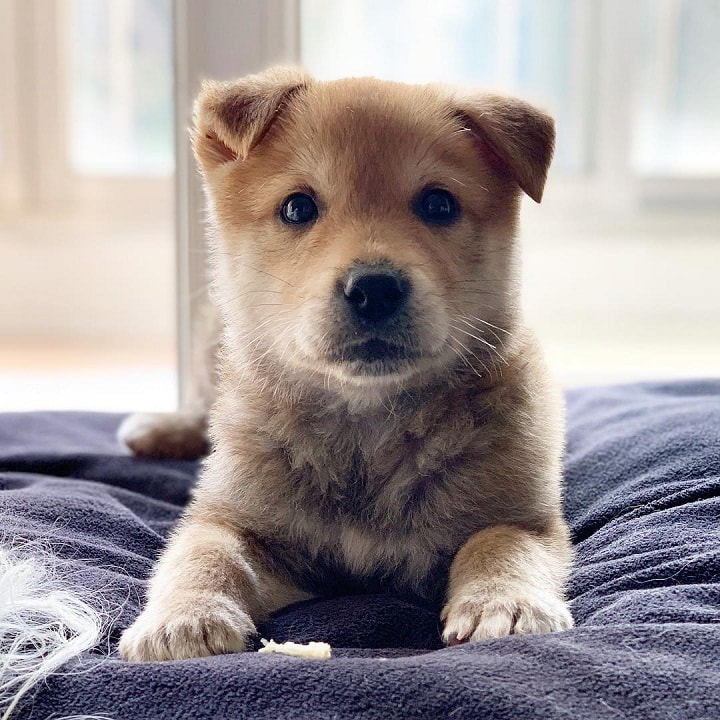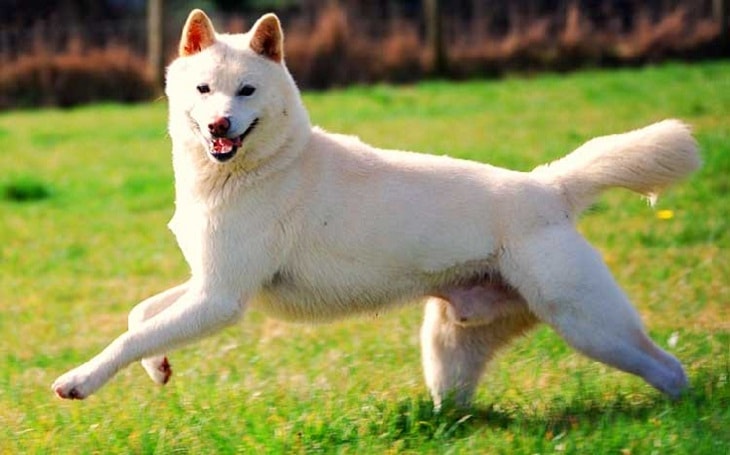Jindo Dog Breed Information
General Information
| Dog Name | Jindo |
|---|---|
| Other Names | JindoGae |
| Scientific Name | Canis lupus familiaris |
| Breed Type | Purebred |
| Group | Toy |
| Breed For | Companion Dog |
| Extinct | No |
| Country of Origin | South Korea |
Physical And Size
| Size | Medium |
|---|---|
| Min Life Span | 12 |
| Max Life Span | 14 |
| Min Ideal Weight for male | 15 |
| Max Ideal Weight for male | 20 |
| Min Ideal Weight for female | 13 |
| Max Ideal Weight for male | 20 |
Ranking
| Intelligent Rank | |
|---|---|
| Trainability | |
| Playfulness | |
| Affection Level | |
| Social Needs | |
| Barking | |
| Watchdog Ability | |
| Territorial | |
| Mouthiness | |
| Adaptability |
Characterisitics
| Temperament | Bold, Affectionate, Bold |
|---|---|
| Prey Drive | Yes |
| Fighting Dog | No |
Friendliness
| Stranger Friendly | Medium |
|---|---|
| Child Friendly | Medium |
| Cat Friendly | Low |
| Dog Friendly | Medium |
| Office Friendly | Low |
| Apartment Friendly | Medium |
| Senior Citizens Friendly | Medium |
| Service Dog | Medium |
| Search and Rescue Dog | Medium |
| Biting Potential | Low |
| Country of Origin | South Korea |
| Nicknames and Other Names | Korean Jindo, Chindo, JindoGae |
| Scientific Name | Canis lupus familiaris |
| Breed Type | Purebred |
| Group | Toy Group, Companion Dog |
| Bred For | Companion dog |
| Size | Medium-sized |
| Recognized By | FCI, UKC, KC, AKC |
| Life Span | 14 years |
| Ideal Weight | 30-50 pounds |
| Ideal Height | 18-22 inches |
| Fur Type | Double coat, soft, fuzzy |
| Common Colors | Gray, Fawn, White, Brindle, Black and Tan |
| Markings | None |
| Availability | Rarely available |
| Achievements | Police and military dog |
| Suitable for Apartments | Not very suitable |
| Used in World War | No |
| Most Similar To | Kishu Ken |
The Jindo is a well-muscled medium-sized dog breed from South Korea. They were used for hunting and guarding. The Jindo is also known by many names like Korean Jindo Dog, Chindo, Jindo Gae, Jindogae, Jin Dog, Jindo Gu They are loyal breed who stays loyal towards his family for the rest of its life.
Jindo is very good looking with triangular erect, alert ears and bold personality. The coat is short, dense and harsh. Their coats are mostly clean and need not be groomed frequently. They are a clean dog who like to brush their coat themselves like cats. The tail is rolled over its back.
Origin and History
Jindo was originated in South Korea in an Island located off the southwest coast. The name Jindo is derived from an island with the same name. They are protected by South Korea as a national monument and is a 53rd national treasure. Jindos were used by hunters to hunt wild boar, rabbits, badgers, deer and so on. They would bring down the prey and would lead the hunter to the spot of the prey.
Loyalty of Jindo
Jindo has been known for its great loyalty and dedication towards his owner. They are so much attached to their owner that in 1993, an old woman named Park-Bak-don bought a Jindo and named her Baekgu. Later, she sold her in the city about 180 miles away. Soon the dog ran from there and took 7 months to return to her original owner, Park-Bak-don. After that incident, the
Is Jindo Child-Friendly?
Jindo is not an aggressive dog but since they are very attached and protective towards their owner, they are suspicious of everyone, even small children. So, early socialization with children is very much necessary to avoid any kind of aggression in adulthood.

Image Source: Instagram-@redthejindo
Temperament, Behavior, and Personality
Temperament: The temperament of Jindo is faithful and loyal. They are very much attached to its owner that if taken to a new owner, they will do anything to get back to its previous owner. Jindo is fai
Behavior: Jindo is very close to his owner. If they are left for a longer period of time by their owner, they will get depressed and more likely sitting in one place all day without eating. Other members of the family presence don’t matter to them, they only want their master to be with them all the time.
Personality: The personality of Jindo is bold and brave. They do not do well with other pets and strangers. Jindo is wary of them and does not trust them. So, proper socialization is necessary for them to be welcoming of guest and their pets.
Trainability
Jindos are known to be fiercely independent and they do things on their own. They are not great with an inexperienced owner as they need consistency and confidence from their owner. Jindo should be trained with the firm leadership and by using positive methods of training.
Since they are very protective of their owner, they can be aggressive around strangers and other pets. Therefore, proper training of socialization is necessary to avoid their aggressive behavior.
Facts
- The America Kennel Club has kept Jindo in the Foundation Stock Service since 2008.
- The average life expectancy of Jindo is 12-14 years.
- Jindo is a great watchdog and can
distinguish good and a bad person from a distance.
Health Issues
| General Health | Healthy |
| Common Health Issues | Hip Dysplasia, Elbow Dysplasia, Hypothyroidism, Eye Problems Patellar Luxation, Epilepsy, Diabetes |
| Hypoallergenic | No |
| Vaccination Required | Rabies, Canine Distemper, Kennel Cough, Canine Coronavirus, Canine Parvovirus, Leptospirosis, Canine Parainfluenza, |
| Shedding | Moderate Shedder |
| Drooling | Average Drooler |
| Grooming | Easy and Minimal Grooming Required |
| Weight Gain Potential | Average |
| Separation Anxiety | Low Chance |
| Allergies | None |
| Diets and Supplements | Protein: 30% Fat: 15% Multivitmins Glucosamine Fish Oil |
Jindo is a healthy breed. There is no serious health problem seen in this breed. However, they can suffer from some canine diseases like:
- Hypothyroidism: The thyroid gland is an important part of the body located in the neck. It is caused usually by the inflammation or shrinkage of the thyroid gland. The symptoms are increased in weight without the increment in appetite, catching cold easily, slow heart rate an so on.
- Hip Dysplasia: Hip dysplasia is common in a medium-sized and large breed. It is caused by the dislocation of the hip joints that cause the server pain on the back making it hard for the dog to move from one place to another.
- Elbow dysplasia
Dental problem
Colors
The Jindo comes in the following colors:
- Black & Tan
- Brindle
- Fawn
- White
- Gray
Puppies

Image Source: Instagram- @omymaltese
Cost: The average cost of the Jindo puppy is between $500-$800 USD. However, adoption can only cost between $300-$400, inclusive of the expenses before adopting a Jindo puppy.
Size
Height: The average height of Jindo is 18-22 inches from the shoulder.
Weight: The average weight is between 30-50 pounds.
Dog Breeds Similar to Jindo
Visit Doglime for more information about dog breeds.
Tags










